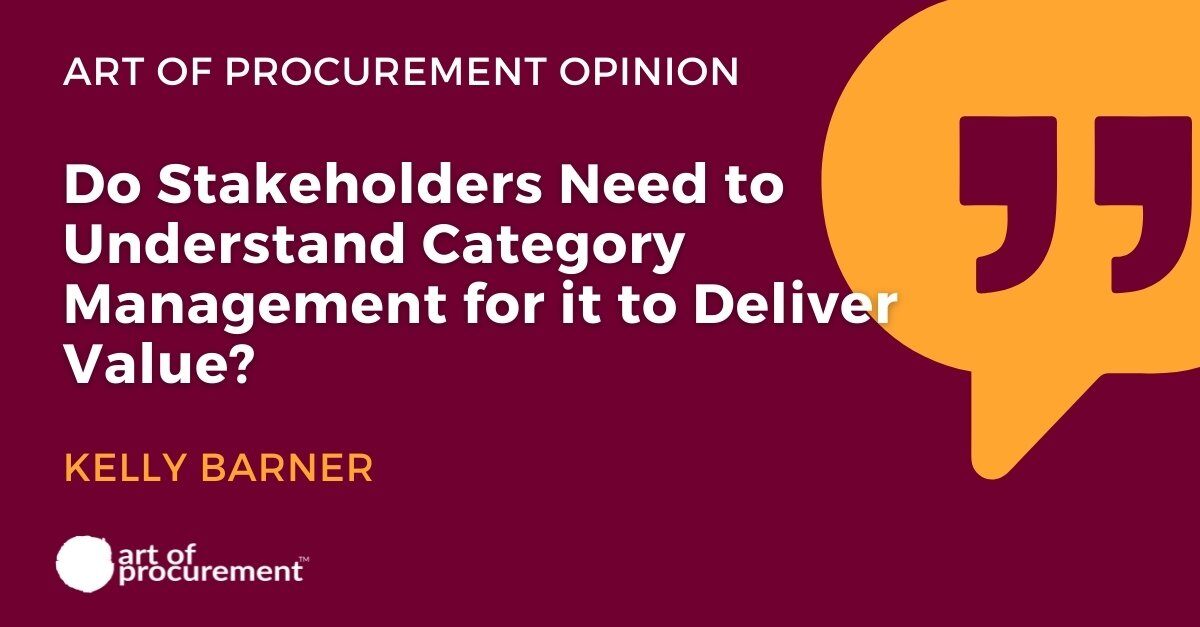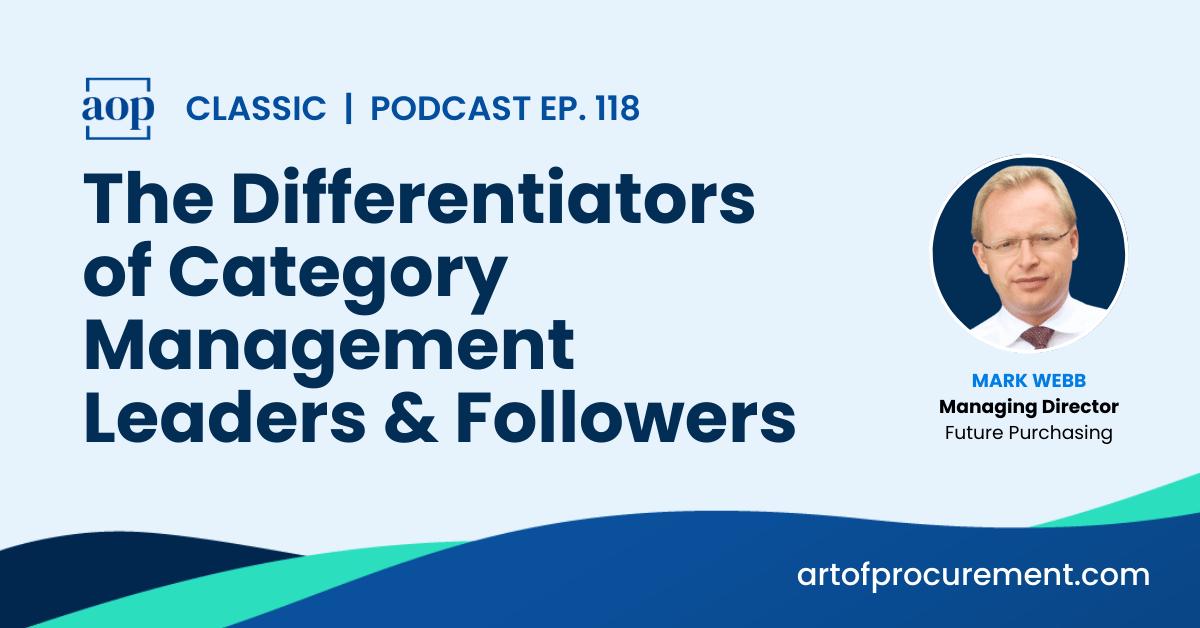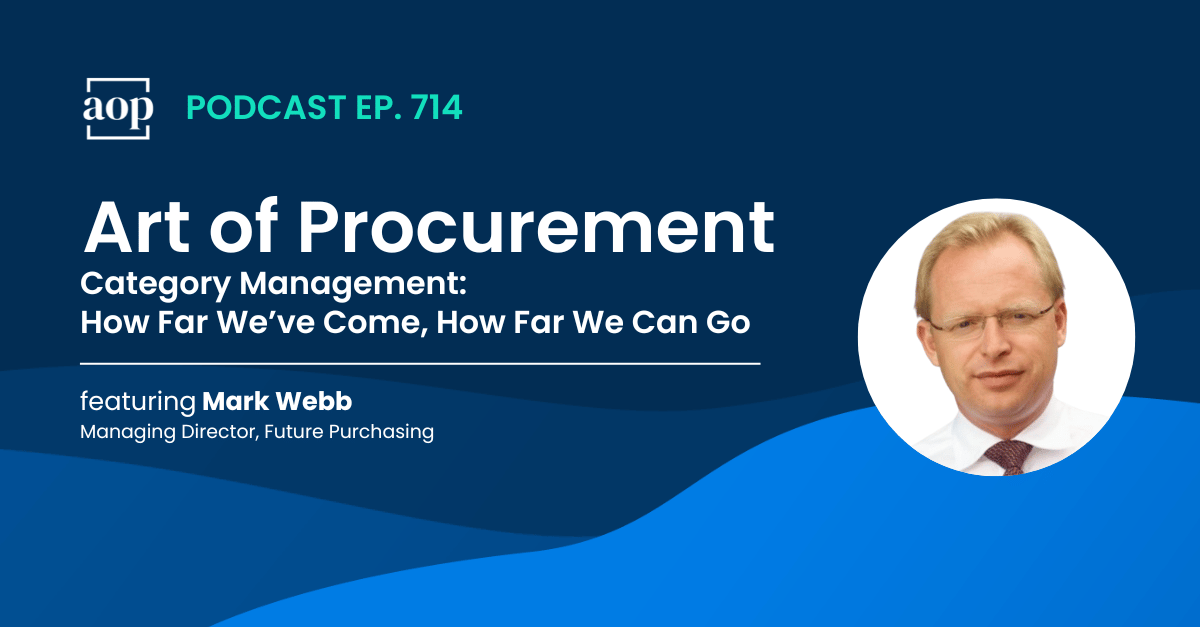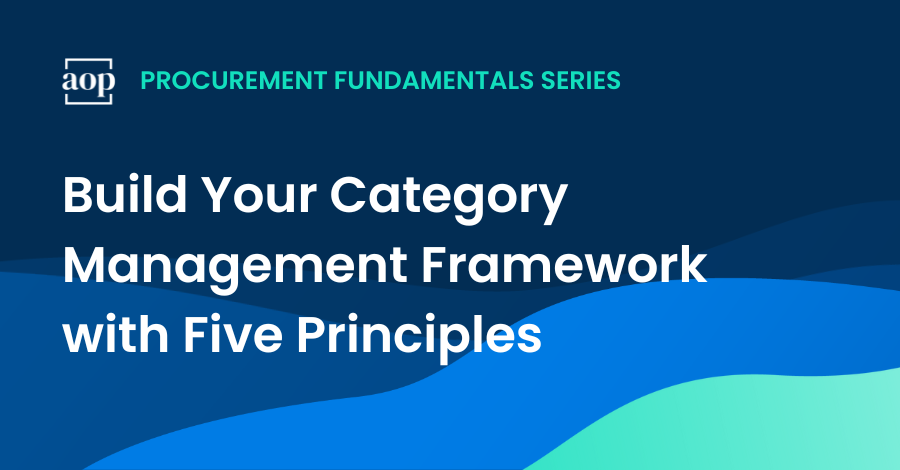2 min read
Do stakeholders need to understand category management for it to deliver value?
Kelly Barner : Updated on December 1, 2024

Future Purchasing (FP), a procurement focused consultancy, have just launched their most recent bi-annual Global Category Management Study (click to complete). Early findings since the survey was last run in 2019 suggest a growing disparity between the companies that are harnessing the full benefits of formal/mature category management and those that have yet to achieve that level of ROI.
One of the more interesting findings of the report allows us to consider the relationship between category management and procurement’s stakeholders. Only 17% of the survey respondents believe that category management is a core business process adopted by stakeholders as well as procurement.
At first glance, this finding is worrying. Why do only 17% see category management as a core business process. Upon further consideration, however, it also seems fair to ask why stakeholders would need to recognize category management as a distinct process if procurement is managing the activities associated with it well.
We would like to open the following question up for discussion: do stakeholders need to recognize category management as a ‘core business process’ in order for procurement to deliver value by following a category management-driven approach?
The case for stakeholders recognizing category management
If a procurement organization is among the top performers identified and studied by Future Purchasing, category management will have changed their mode of operation enough that it will not only be perceptible by stakeholders, it will come up in strategy discussions as well. The most evident change associated with mature category management is likely to be the elevation of sourcing and supplier management activity. Procurement’s interactions with the business will no longer be tied to individual sourcing projects that begin and end, but rather the ongoing management of supply chains, materials, and service categories. Stakeholders can hardly fail to notice this change, and procurement should communicate the rationale and benefits of following this approach, naturally leading to recognition – and appreciation – of category management on the part of stakeholders.
The case against stakeholders needing to recognize category management
For a long time, procurement has been criticized for being too ‘other’ in terms of language, systems, process, and approvals. This ‘otherness’ creates friction and confusion among stakeholders who (understandably) expect their corporate sourcing and buying activity to be as easy and straightforward as their eCommerce shopping at home. Most of procurement’s stakeholders don’t need to be aware of category management – what it is, how it works, why it is being applied – in order for it to deliver value to them. In fact, we might just as easily make the case that if stakeholders have to become aware of category management in order for it to deliver value, then procurement has not achieved seamless alignment with what the business needs.
To make sure your perspective on category management is included in this year’s study, click here to participate by August 15th.




